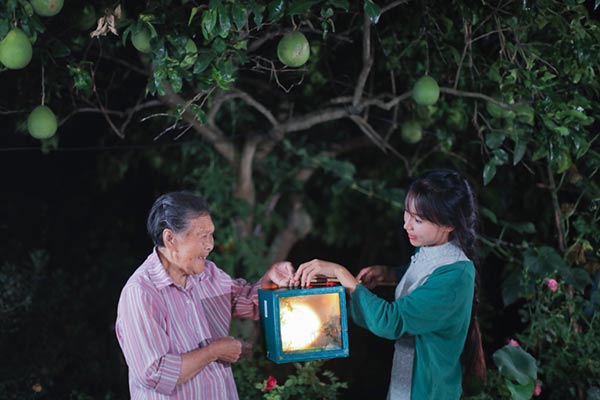A very good way to tell China's story to the world


Of late, the Chinese media have turned the spotlight on a woman named Li Ziqi, hailing her for doing an excellent job of "telling China's story to the world". Li seems to have become an unofficial cultural ambassador showcasing China's history and culture.
Li, 29, lives with her grandma in a small village of Mianyang, a remote, mountainous area in Sichuan province. She has been posting videos of her daily life on social media platforms since March 2016 to connect to the world.
Her popularity online can be gauged from these figures: on You-Tube, Li's "channel" has more than 7.61 million subscribers, and the figure is growing daily. On Sina Weibo, one of China's most popular social media platforms, she has more than 21.5 million fans. And each of her 104 YouTube posts has been viewed between 2 million and over 40 million times.
Technically, the fine quality of her cinematographic output is the most eye-catching feature. The stunning scenery of Li's village, her elegant yet confident way of getting jobs done, and the relaxing background music are all appealing to viewers. No wonder many are drawn to her videos which seem like a combination of "Top Chef+ Project Runway + HGTV+ National Geography+ History Channel".
Culturally, what touches the heart of Li's followers is the universal language of love, inner peace, caring for the family and love for nature. Many viewers find inspiration from Li's posts. Others, tired of their technology-driven fast-paced urban life, find solace in her simple and tranquil life.
Ironically, Li has not been as well received at home as overseas. Some critics question whether she alone filmed and edited her early posts. A few even accuse her of showcasing the "backwardness" of China to foreigners, while some contend that her presentation of rural China is surreal and imaginary. And recently, a debate has started on whether or not Li is "exporting" Chinese culture abroad.
But the fact that Li single-handedly produced her early works has been documented and publicized. And she cannot be blamed for having a small crew now that her filming and editing work has increased.
As for "exporting culture", Li has never claimed the responsibility of spreading Chinese culture to the world. What she does instead is merely recording and presenting her lifestyle to make a living.
Moreover, much like "propaganda", "cultural exportation" carries a certain derogatory meaning in the Chinese language. But if the term is taken to mean diffusing a nation's ancient wisdom and cultural products to entertain and inspire others, what is wrong with Li engaging in such activities? After all, people across the world have been partaking in such activities-for instance when watching a Hollywood movie with a can of Coca-Cola in hand.
Li's popularity also makes us reflect on what should be an effective way of "telling China's story" to the world and changing the stereotype image of China depicted in some Western media. Finding "the right stories" might be the first step of good storytelling. The love of life and family, and living in harmony with nature are universal themes transcending cultural barriers and national boundaries. Even a great story needs a good medium and technique to be told well. Taking advantage of modern technology, both public and private actors can portray China's rich culture and rapid growth in various ways.
More important, transparency is necessary to prevent misperceptions about and intended demonization of China by the Western media, since the lack of information could prompt some biased media outlets to fabricate stories and give the wrong picture of China to the world.
The author is an associate professor at China Foreign Affairs University and a Fulbright visiting scholar at the School of Advanced International Studies of Johns Hopkins University. The views don't necessarily represent those of China Daily.

































